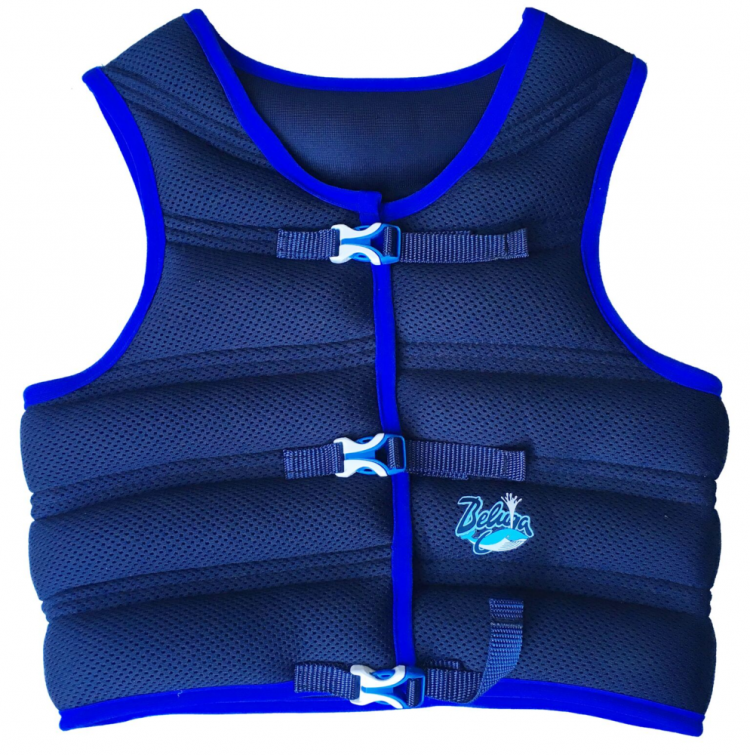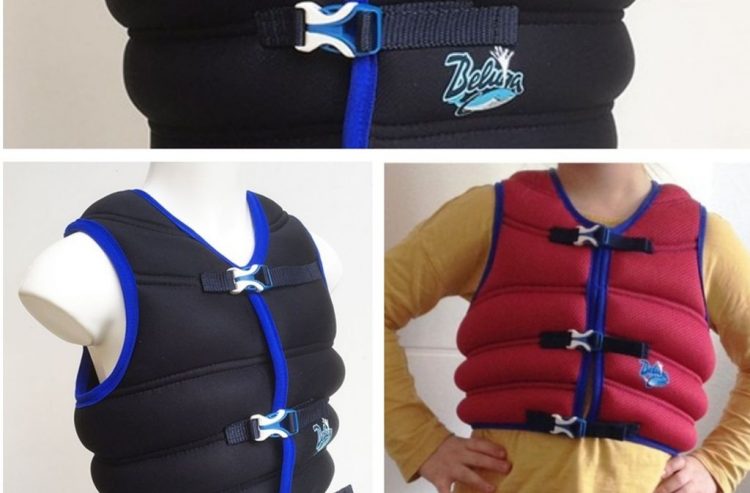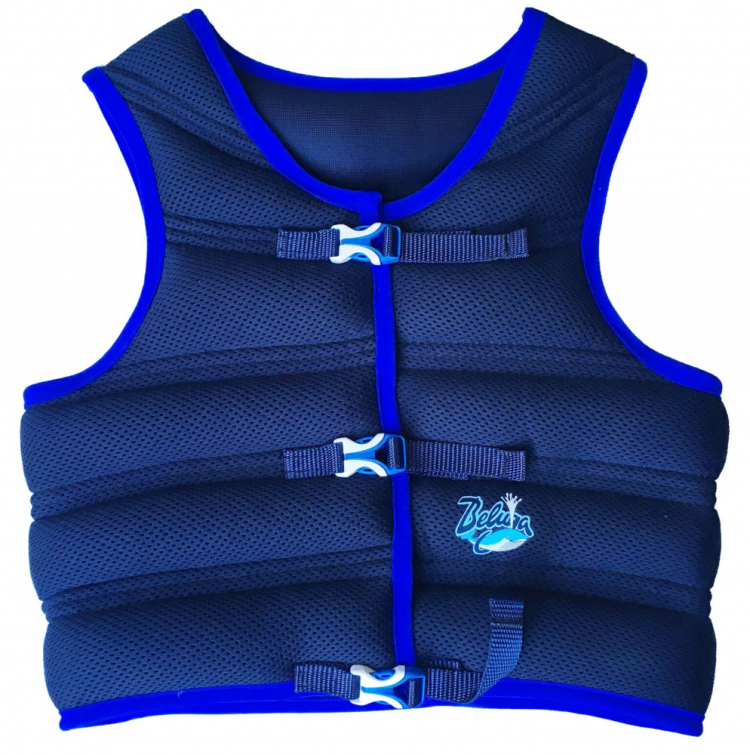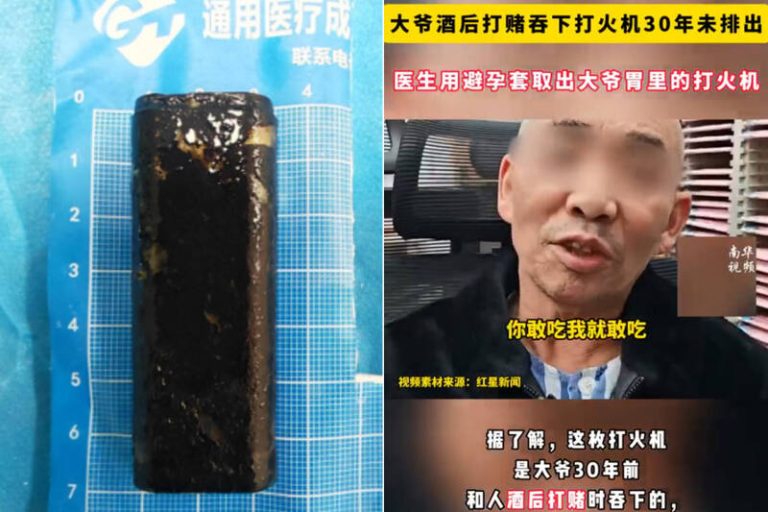200 schools in Germany have begun asking hyperactive children, typically those with attention deficit hyperactivity disorder (ADHD), to wear heavy sand-filled vests to calm them down and keep them in their seats during classes. The controversial vests, which weigh between 1.2 and six kilograms (2.7 – 13Ib), have sparked misgivings among parents and psychiatrists.
There are plenty of advocates, however, who claim to have witnessed remarkable changes in behavior among the children who have worn them and insisted that they help curb restlessness. There has been a growing number of ADHD cases diagnosed in Germany each year, and schools that use the vest claim that they are a gentler and less complicated way to tackle the phenomenon than administering psychiatric drugs such as Ritalin.

A weighted sand vest (Photo: Beluga Healthcare)
“Children love to wear the vests, and no one is forced into wearing one against their will,” Gerhild de Wall, head of the inclusion unit at the Grumbrechtstrasse school in the Harburg district of Hamburg, said told the Hamburger Abendblatt. Her school is one of the pioneers in the use of sand vests.
Critics say that the vests are reminiscent of straitjackets used to constrain violent patients in psychiatric hospitals and the children wearing them are in danger of stigmatization.
One parent vented her outrage on Facebook, saying: “It would be best if we avoided such torture methods. How can you say to a child, ‘You’re sick, and as a punishment, you have to wear this sand-filled jacket which is not only physical agony but will make you look like an idiot in front of the rest of the class.’ I think some people have lost the plot”.
However, another parent, Barbara Truller-Voigt, whose nine-year-old son Frederick has worn a 2kg sand vest at school for three years to help his ADHD, defended the vest, saying that she believed that it had a positive impact on him.
“He voluntarily puts it on and has the feeling that it helps him,” Truller-Voigt told the Hamburger Abendblatt. “He can concentrate better and is more able to take an active part in lessons because he’s not spending the whole time trying to keep his arms and legs under control.”
De Wall first encountered the vests while teaching in the United States, where schools occasionally use them for children with autism. She claimed that rather than constraining a child, they could help them to feel centered.

Photos: Beluga Healthcare
“Kids who fidget a lot or have a sensory disorder, often have problems being able to sort out one stimulus from another,” she said. “The vests help them to have a better sense of themselves, and that in turn helps them to concentrate.”
De Wall claimed that while the vests should never be worn by children for more than 30 minutes at a time, the weight is not a problem as it is spread evenly over the upper body. She also said that there was competition among students in her school to wear the vest, whether they were diagnosed ADHD or not. “The pupils jump at the opportunity to wear them, so we make sure to also let the kids wear them who don’t actually need them, which helps to ensure there’s no stigma attached to having one,” she said to Abendblatt.
However, many psychiatrists are skeptical about the vests, particularly without any data on the long-term effect of their use.
“What we don’t want is something where children are wearing something visibly stigmatizing,” said Louise Theodosiou, a consultant psychiatrist based in Manchester. “We need to know, how does the child feel about it, are they being teased about it?”
Michael Schulte-Markwort, director at the Child and Youth Psychiatry University Clinic in the north-western Hamburg district of Eppendorf, told German newspaper Die Tageszeitung that the vests were “ethically questionable”. He also said that they could be construed as a blanket solution to fit all attention deficiency disorders.
Schulte-Markwort also criticised the schools for putting too much emphasis on making a child changed their behavior to fit into the class, rather than focusing on helping to solve the child’s issues. “We should be doing that far more,” he added.
The Schools minister for the western state of North-Rhine Westphalia, Yvonne Gebauer, stated in an interview with the Westdeutsche Allgemeine Zeitung that she did not approve the use of the vests in her area. “This is an unusual method, whose application I can only view with a great deal of criticism,” she said. “Neither are there any verified findings or studies about their effectiveness.”
Following the controversy unleashed by initial reports of the use of the vests in German schools, the leading manufacturer, Beluga Healthcare, released a statement on its website. In it, Beluga owner Roland Turley stated, “We don’t want the vests to be viewed as a magic solution to be deployed in every case of concentration disorder. Not every restless child needs a sand vest. Children need to wear them voluntarily, and it’s necessary to have an informed diagnosis from an occupational therapist or a pediatrician.”
He went on to admit that no studies had as of yet been carried out regarding the long-term effects on ADHD symptoms from using the vests.













